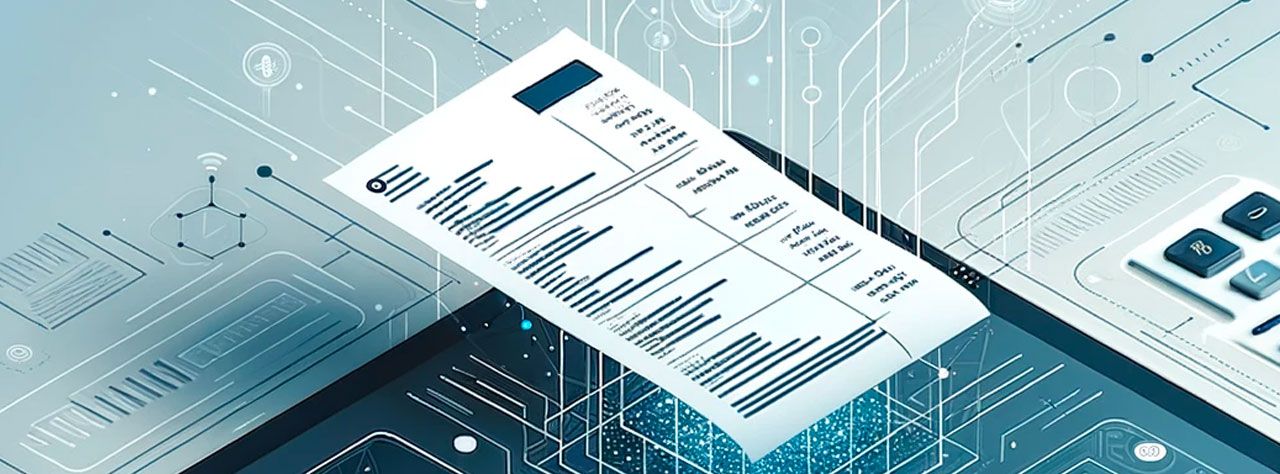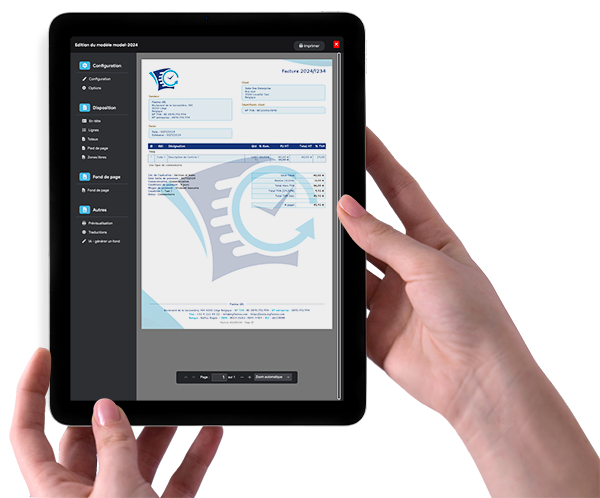First of all, allow me to wish you an excellent year 2024 and express our gratitude for the trust you have placed in our company since 2008.
This year will mark a period of many software changes at Flexina, aimed at preparing you for the obligation to send and receive electronic invoices in Belgium, France and Luxembourg.
Currently operational in Belgium and Luxembourg, the system can already be activated for electronic invoicing via the Peppol module. In France, unfortunately, the implementation of this process is complex, due to changing and poorly understandable specifications, as illustrated here: https://www.impots.gouv.fr/specifications-externes-b2b
What changes can be expected at Flexina in 2024/2025 for electronic invoicing?
We are working on a new document printing system to meet the new obligations related to electronic invoices. This system will be simplified, include all mandatory fields, and offer you the possibility to choose from various document styles, with customization options such as colors and font. This approach aims to simplify adaptation to complex and evolving requirements.
The new system will also include country-specific validation rules to avoid rejection of electronic invoices by your customers.
The purchase invoice module will be improved to allow direct receipt of supplier invoices in Flexina, thus extending its already operational functioning for Peppol in Belgium and Luxembourg to France.
What is Flexina's point of view on electronic invoicing?
Initially perceived as a secure and reliable solution for invoice transmission, electronic invoicing also offers the possibility of simplifying accounting management and centralizing purchase invoices.
However, current constraints seem linked to increased tax control by government authorities. In France, for example, all invoices will be transmitted to the DGFIP for more targeted tax controls.
The lack of European standardization creates challenges, with countries adopting different systems such as Peppol in Benelux, while others, like France, opt for distinct approaches. Nevertheless, hope lies in the possibility of convergence towards a uniform European system.
The costs associated with sending and receiving electronic invoices vary from country to country, with fees related to using the Peppol network in Belgium and Luxembourg, and free and paid options in France.
Additional obligations such as sending payment statuses and declaring sales to individuals add an administrative layer, creating additional challenges.
Europe seems to recognize the need to standardize electronic invoicing systems, although this may take time.
In conclusion, while electronic invoicing offers initial advantages, current policies have introduced unnecessary complexities by mixing tax control and invoicing, making an unavoidable transition necessary in Belgium and France by 2026. At Flexina, we are committed to preparing you for this inevitable change by offering a user-friendly and efficient system.
We are currently looking for volunteers to test our new printing templates. Your participation would be valuable to help us ensure the user-friendliness and efficiency of these new models. If you are interested in participating in this testing phase, please contact us and we will provide you with more information on the procedure.
Additionally, for companies in France that intend to start electronic invoicing voluntarily in 2025, we wish to collaborate with you. Your early engagement will be essential to perfect our system and offer you a smooth transition to this new method. If your company is ready to participate in this initiative, please let us know of your interest so that we can support you throughout this process.
We are grateful for your collaboration and continued support. Together, we are shaping the future of electronic invoicing with Flexina.
Sincerely,
The Flexina Team




